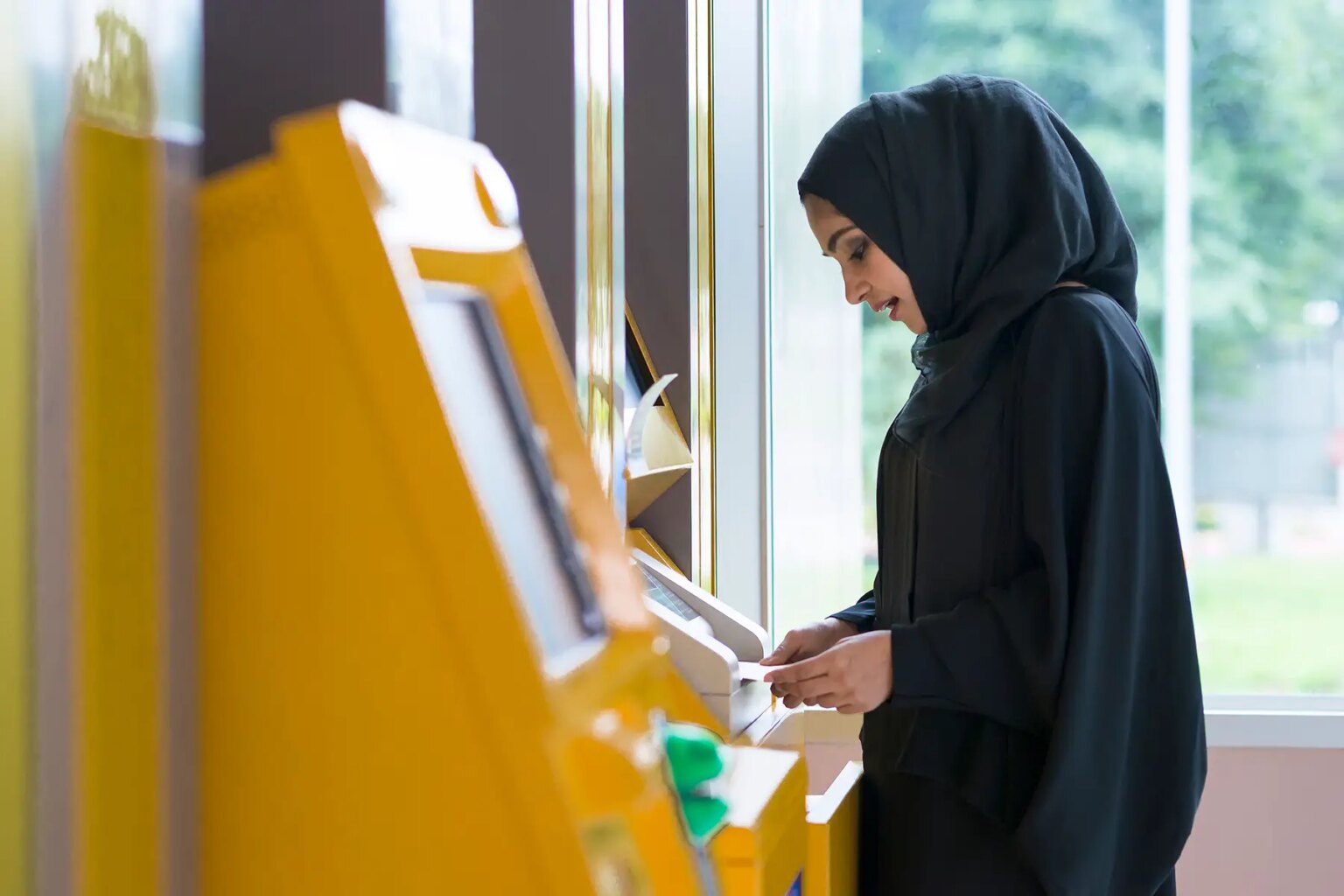
Opening a bank account in Saudi Arabia can take longer than you are used to in other parts of the world. But this helpful guide provides all the information – and documentation – that you need to access your money in the Kingdom.

By Keith Fernandez
New expats should be aware that opening a bank account in Saudi Arabia can be a long process. Therefore they might want to budget enough cash to tide them over for the first few weeks after arriving there. Luckily, employers understand the situation and will usually provide staff with a cash advance against their initial salary.
This helpful guide explains everything you need to know about how to open a bank account in Saudi Arabia, including what documents you may be asked for, as well as how you can go about closing a bank account. It includes the following sections:
As home to over 30 local and international banks, expats have a wide range of options to choose from when opening a bank account in Saudi Arabia. Four domestic banks in the Kingdom accounted for approximately 57% of total sector assets in 2019, including the National Commercial Bank (NCB), Al Rajhi Bank, Samba Bank, and Riyadh Bank.
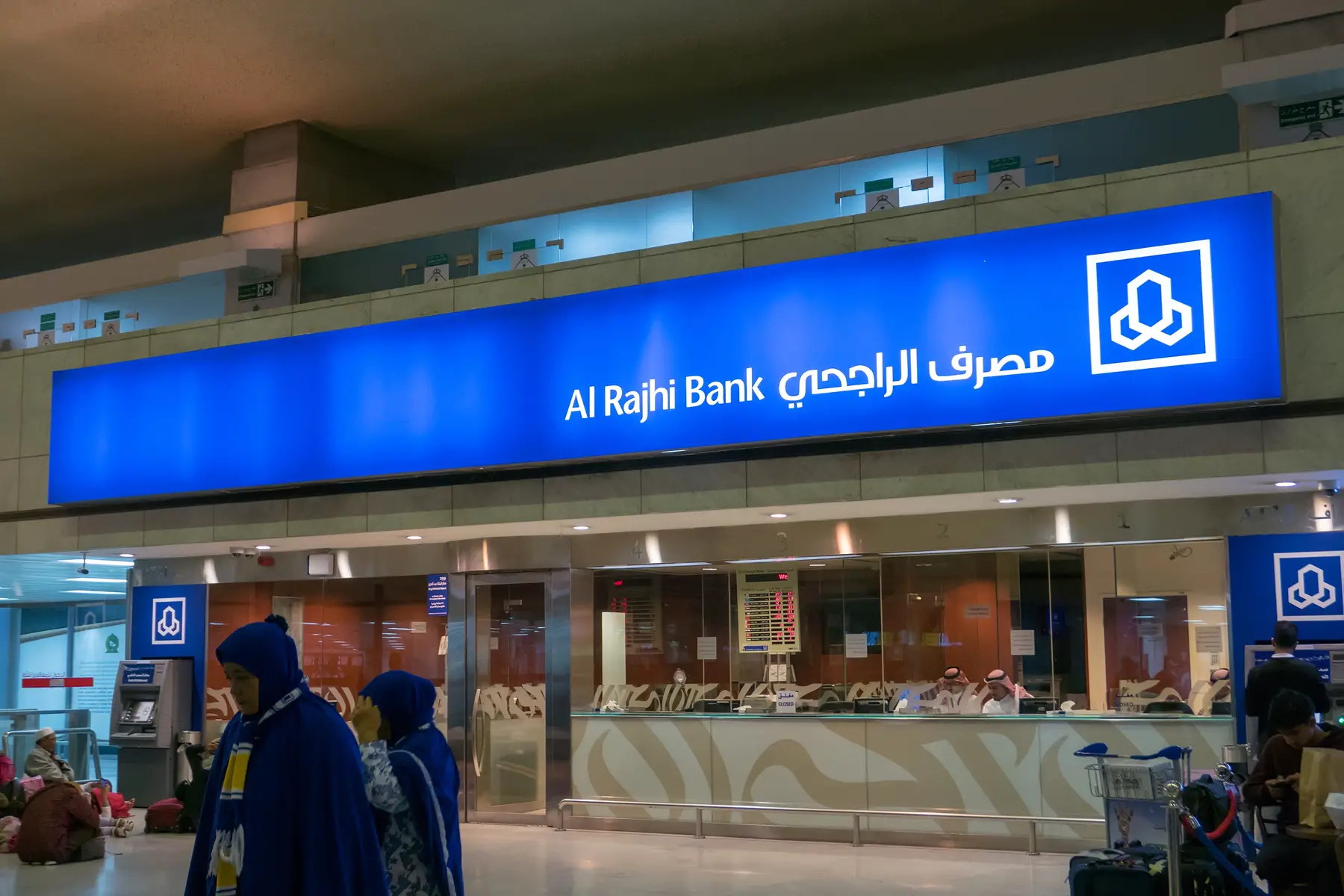
There are also a number of international banks in Saudi Arabia, including Emirates NBD, First Abu Dhabi Bank, Deutsche Bank, HSBC, Standard Chartered Bank, BNP Paribas, and the Industrial and Commercial Bank of China.
Bank branches are easy to locate in most major cities and expat centers and tend to be found in malls or on high streets. All banks operating in Saudi Arabia offer services in English and Arabic.
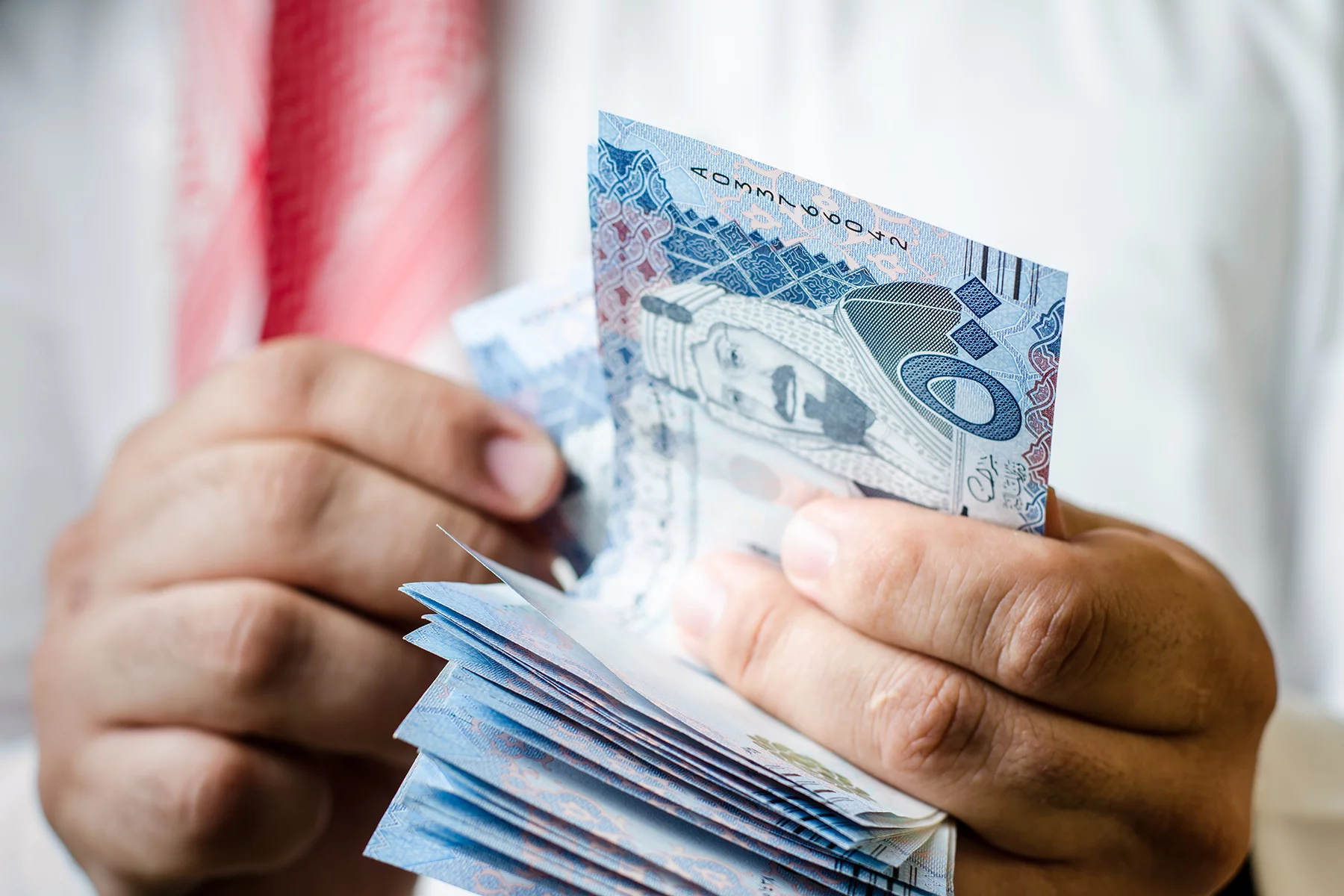
Banking in Saudi Arabia
Expats living in Saudi Arabia may be able to manage their money using an overseas account; however, they may find this tedious and cumbersome. Most residents benefit from a local bank account in Saudi Arabia, particularly for salary transfers.
Although Saudi’s banking system is well connected to other countries, local creditors may not be willing to transfer money overseas because of the high fees involved. A local account also eases the process of obtaining credit cards and taking out a car or home loan in Saudi Arabia.
Since opening a bank account in Saudi Arabia can take a few weeks, expats who have just moved to the country should budget for a few weeks’ cash in order to pay for daily expenses. You will find it easy enough to withdraw cash using an international bank card at any ATM, but expect to be charged for the transaction; up to SAR 30. You will also be able to use an international credit or debit card for larger purchases (above SAR 30).
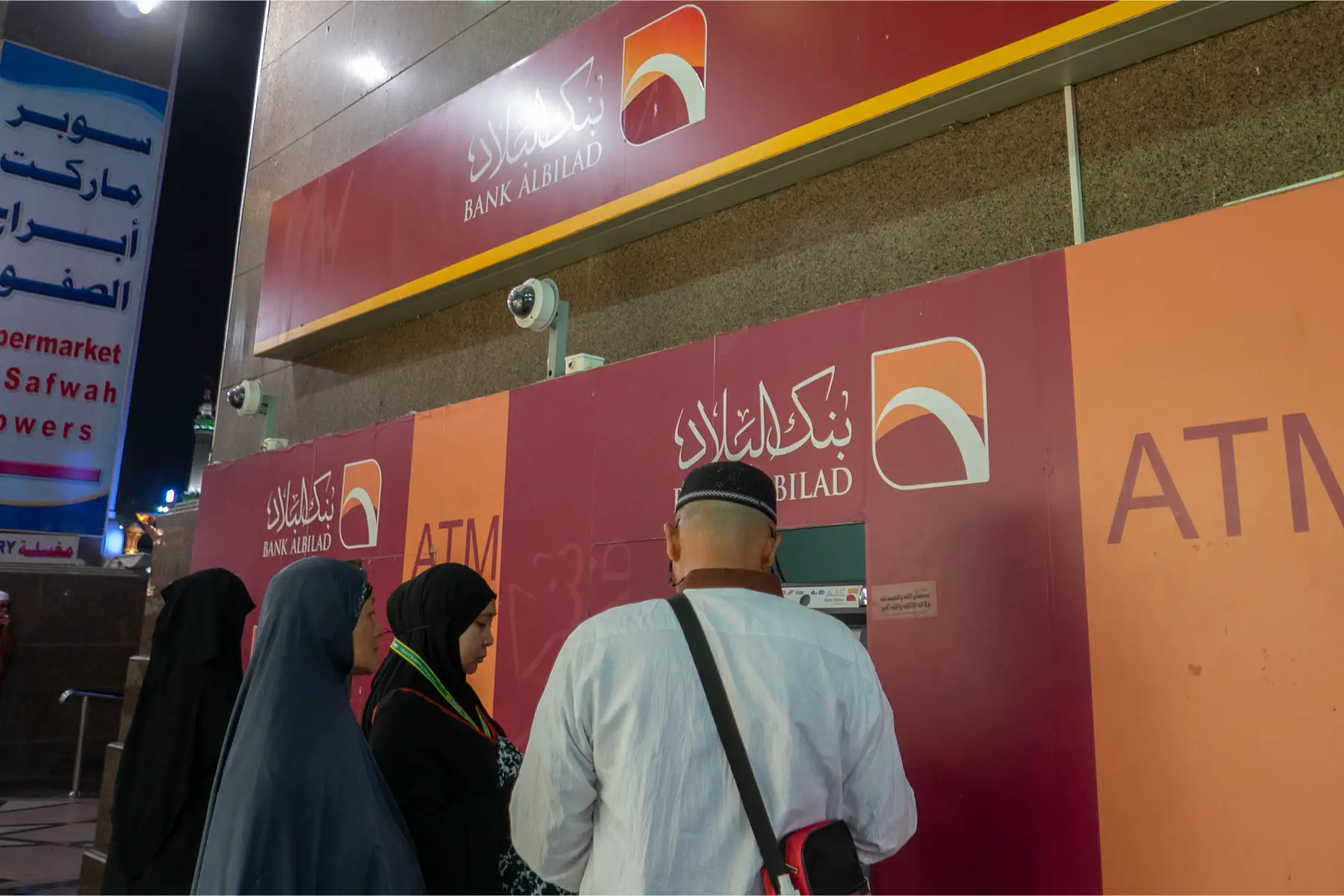
Retailers, especially in the big cities, accept cards from networks such as Visa and MasterCard. However, you may be asked to pay cash for smaller transactions, such as taxi fares or grocery items.
With expats comprising over 32% of the population, Saudi employers are used to residents’ comings and goings. As a result, most companies have systems and processes to help new expats ease into Saudi life. Furthermore, you will find that your HR department will easily authorize a cash advance against your first – or second – salary. This is particularly helpful for a deposit on your rent in Saudi Arabia, for example; especially if you aren’t getting company accommodation.
You will need to be physically present to open a bank account in Saudi Arabia. This is because you will need to have your residence visa stamped in your passport, in addition to other documents.
The Saudi Arabian Monetary Authority (SAMA), which regulates banking activity in Saudi Arabia, stipulates that banks cannot charge customers for opening new accounts. This service is provided free of charge.
As an expat, you have a choice of different types of bank accounts in Saudi Arabia, and these may vary from bank to bank. Note that the benefits accompanying a particular type of account at one bank may not be the same as those available elsewhere.
Here are some of the basic bank account types:
A current account allows you to carry out traditional banking transactions, including depositing or withdrawing cash, issuing checks, paying and collecting checks, and paying recurring expenses such as utility bills via telephone or internet banking. You can also open a joint account with someone else.
Savings accounts allow you to save money over any given period of time with a margin of profit on the money deposited in the account. There may often be restrictions on the number of withdrawals on the account. Savings account holders usually cannot ask for checkbooks.
Time deposit accounts are for people who want to make their money work for them, and are able to put away substantial amounts for a period of time. They usually carry a higher profit margin than a savings account and are typically linked to a certain fixed deposit amount and a certain period of time.
Many banks in Saudi Arabia provide exclusive and tailored banking services for women via special bank accounts designated for ladies.
Parents can open bank accounts for their children. They typically carry restrictions on the number of transactions possible but are a good way to teach children about finances.
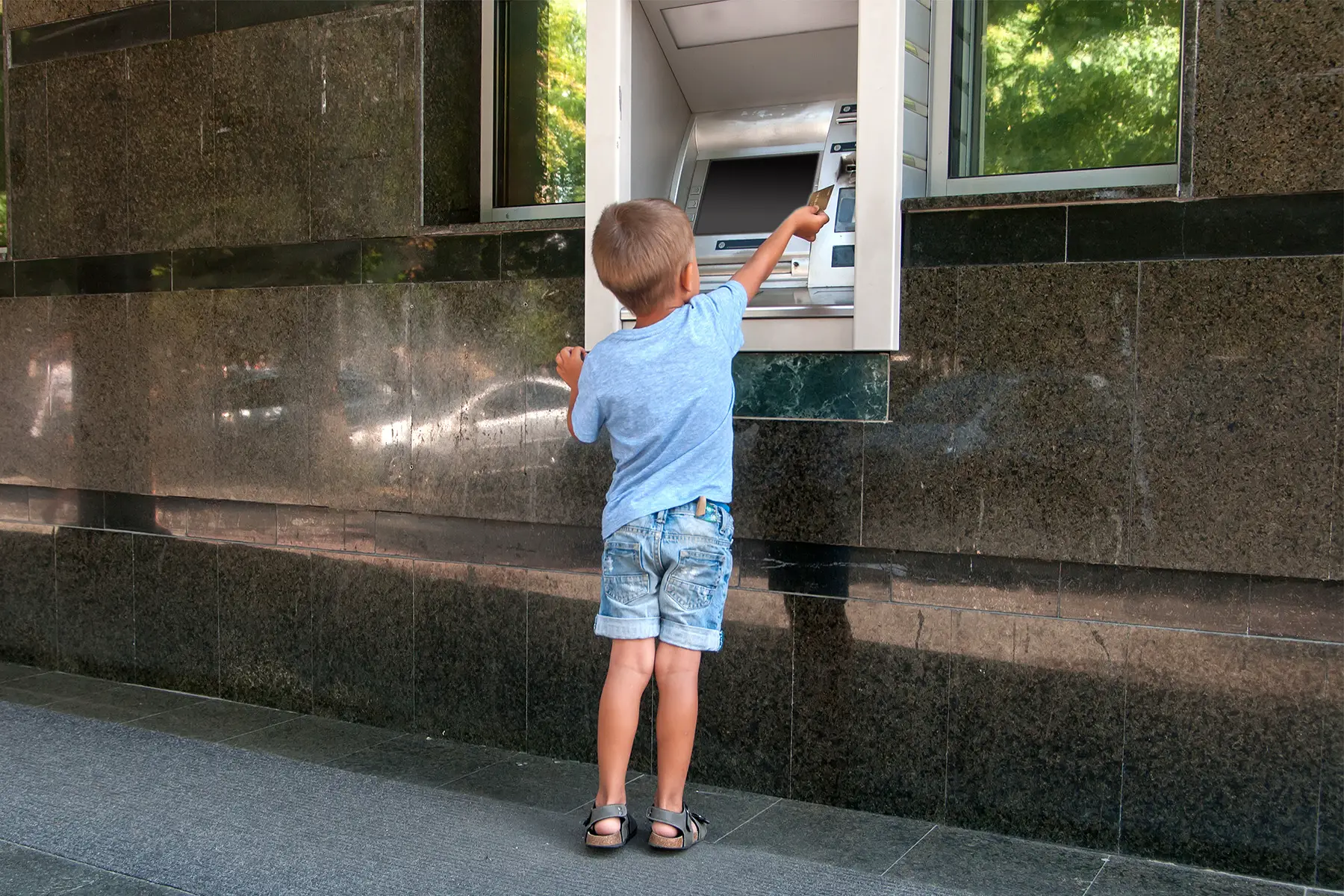
Many banks in Saudi Arabia offer investment services. You can open an investment account on signing an investment agreement for a fixed period of time with the bank. Such agreements cover the management of your funds with minimum assured returns and usually require a minimum investment balance.
Many expats open offshore accounts when banking in Saudi Arabia as this can be the most effective way to save, invest, and manage money while living abroad. Wealth managers and brokerages offer these services, but banks in Saudi Arabia also have links to offshore facilities. Banks to consider include HSBC and Riyad Bank.
Expats who want to open a bank account in Saudi Arabia can choose from a variety of banking partners. It is a good idea to compare products and services across different banks and then choose one that meets all your requirements. In many cases, your employer may have a preferred banking partner; you may be required to choose the same bank for your salary account. Doing so means that your salary is available to you on the day it is transferred.
In practice, however, it is worth remembering that you have many options when opening a bank account in Saudi Arabia. All have internet and mobile banking services and offer phone banking options around the clock. Here is a selection of these banks:
Also known as Al Ahli Bank, the NCB was Saudi Arabia’s first modern bank, opening in 1953. It is the country’s largest by asset size with a paid-up capital of SAR 30 billion (US$ 8 billion). The bank offers current accounts and credit cards for personal banking customers.
Partly owned by HSBC, it traces its roots to the British Bank of the Middle East which was acquired by HSBC in 1959. SABB offers a range of personal banking and private finance products, including loans, mortgages, and credit cards. In addition, it offers a SABB Premier, SABB Advance, and Al Ruwaad Current Bank Account.
The world’s largest Islamic bank by capital, Al Rajhi is one of the largest joint-stock companies in the Kingdom. It has over SAR 330.5 billion in assets under management, and over 600 branches. It offers current accounts, affluent accounts, private accounts, and ladies’ accounts, as well as credit cards and personal, home and car loans.
Dubai-headquartered Emirates NBD is one of the most advanced banks in the Middle East. It offers personal, priority, business, and corporate banking in Saudi Arabia. Personal banking services include current accounts, time deposits, credit cards, auto loans, and ladies’ banking products.
Opening a bank account in Saudi Arabia can be a tedious process and can take a few weeks. However, things are sure to go faster if you have all the documents you need. Luckily, the system is geared towards expats and you should be able to rely on a tried-and-tested way of doing things.
Depending on the kind of account you want to open, the process can take a couple of weeks and requires different sets of documents.
As a resident, the basic requirements for opening a personal savings or current account are:
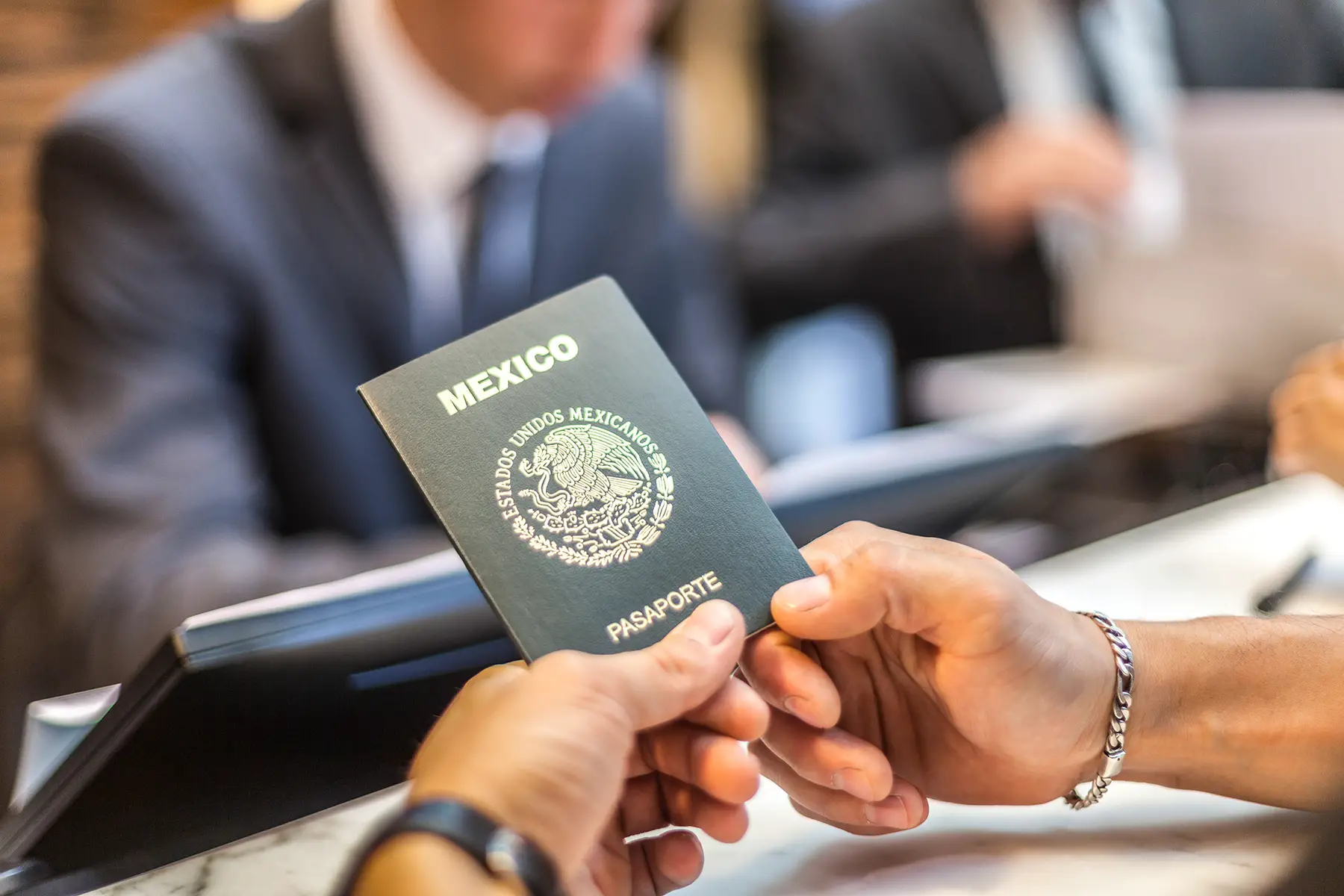
You also require a letter of no objection or a no-objection certificate (NOC) from your employer. The employer’s letter needs to stipulate your salary; to show the amount that will regularly be paid into the bank.
Some banks will ask to see your tenancy agreement to establish your residential address, and most will ask for a photocopy of your passport. You should take copies of all these documents, as well as identity photographs.
Expats in Saudi Arabia quickly get used to the need for a no-objection letter from their local sponsor. This is because authorities across the board, from landlords to immigration officers, will request one. The banking sector is no different.
There are some things worth knowing when opening a bank account in Saudi Arabia. For instance, a bank may not want to open an account for you if your company is not registered with them. Therefore, this may in effect force you to bank with your employer’s bank. A bank may also decide to run a background check before allowing you to open an account. Finally, a resident can open a bank account for his wife or children; he is in effect their sponsor.
As with starting a business in Saudi Arabia, entrepreneurs and business people will find that opening a bank account in the country is subject to stringent checks and procedures. Companies operating in Saudi Arabia will need to open a capital account during the company registration process and deposit the required paid-up share capital. This capital account does not require the appointment of a bank signatory and cannot be used for business operations.
It usually takes approximately 8 to 12 weeks before your business bank account is operational. You will require the following documents to hand, and many expat businessmen feel it makes sense to appoint a local business consultancy to help them:
Not all banks in Saudi Arabia offer accounts for children. In addition, banking services for these accounts vary considerably from bank to bank. Some may require hefty minimum balances and a certain balance to be maintained each month before a profit is paid. In addition, they may have limits on the number of withdrawals, while others do not require anything of the sort.
In general, parents act as their children’s guardians and can open accounts for them, as they are in effect, their sponsors. Regulations only permit fathers to open bank accounts for their children; they are deemed to be their natural guardians or custodians in line with Sharia law. Mothers, even if they are legal guardians, cannot open accounts for their children. Once an account has been set up on behalf of a minor by the father, he can then provide a Power of Attorney so that the mother can manage the account on an ongoing basis without him being present.
The documents required to open a bank account for a child are as follows:
SAMA regulations stipulate that banks cannot refuse to open accounts for legally resident expats – except under certain conditions. According to the authority, “Any natural or legal person has the right to open an account in any bank in Saudi Arabia. No bank shall have the right to refuse any account opening request as long as it completes all the procedures and meets all requirements for opening a bank account. This excludes some cases as specified by SAMA.”
These conditions typically concern whether or not foreign nationals are a risk to the bank; for instance, those who have a criminal record, or are on an international wanted list of some kind. However, in such cases, the foreigner would be refused a residence visa in the first place.
On the other hand, a bank may refuse to take you on as a customer if you do not provide documents confirming your identity, your employment status, and the nature of your job. In addition, customers may be rejected for the following reasons:
However, if you are denied a bank account, you can escalate the matter to SAMA’s Consumer Protection Department. You can complain via a phone call, letter, email, or in person. Once you make a complaint, you will receive a complaint reference number that you must use in all future communications with SAMA.
Expats living in Saudi Arabia have access to a range of additional services from local and international banks operating within the country. You can choose to go with your current bank when buying these services or establish a relationship with a new bank. Many services are restricted by salary transfer accounts, so you will want to ask about these. Some services include:
Expats with a minimum monthly salary of SAR 5,000 are eligible for a credit card. Residents have a wide choice of payment cards, with perks including airport lounge access, airline air miles, dining discounts, and more.
As with banks in other parts of the world, anyone banking in Saudi Arabia automatically becomes eligible for a debit card. Such a card allows you to withdraw and deposit money at ATMs; as well as make payments for purchases in a wide range of shops and other retail establishments. ATM cards can typically be used free of charge at any ATM in Saudi Arabia as part of the Saudi Payments Network (SPAN).
Car loans are easily available in Saudi Arabia. Depending on the bank, expats may or may not be asked for a down payment on a car loan. A 15% down payment is considered the industry standard when taking a loan from a bank where you aren’t transferring your salary. The maximum repayment period is usually 60 months or five years.
Banks in Saudi Arabia offer expat residents personal loans in a variety of different ways. These may be a cash loan on the back of a credit card, or a more traditional bank transfer obtained on a visit to the branch. The maximum repayment period is 48 months or four years.
With an economy so heavily influenced by expats, it is easy enough to simply transfer money overseas via smartphones when banking in Saudi Arabia. Expat residents can often simply transfer money overseas via their smartphone. Many local banks have correspondent or partner relationships with institutions in other countries, so depending on where you want to move your money, it’s worth asking about these. Some banks offer free transfers to some countries, such as India.
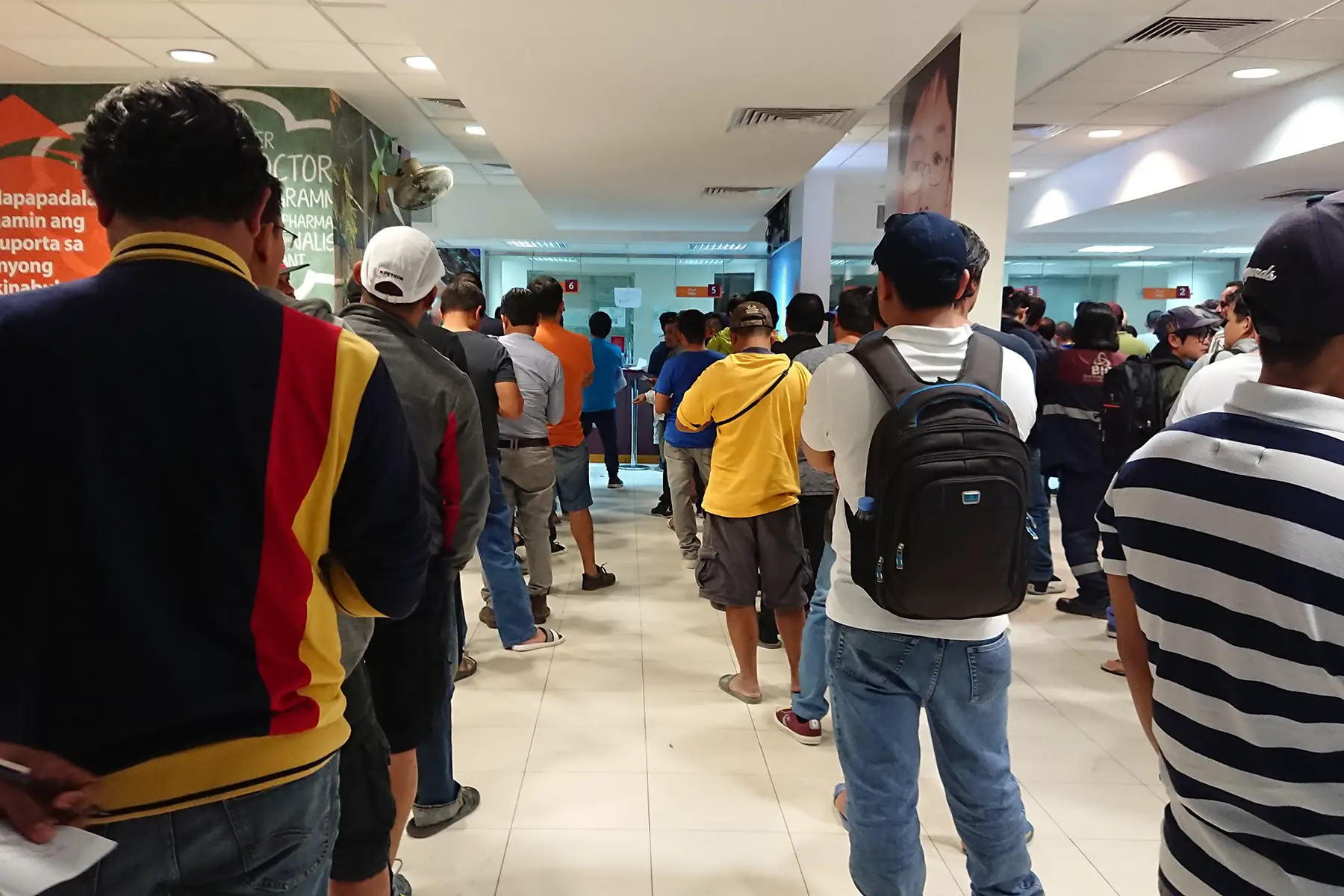
However, in general, banking institutions have high charges for sending or receiving money from Saudi Arabia. Therefore, it is worth considering the alternative money transfer solutions to banks which are usually easier and cheaper. A range of money exchange companies, such as Mohammed Hasan Yala, Alamoudi Exchange, and Ersal Money Transfer, operate across the country, with branch counters at different malls.
In addition, there are several online services, which offer the best rates. These include:
You have different ways of operating a bank account in Saudi Arabia. You can choose how you manage your money and finances with the banks, whether that is via counter services at the branch or remotely, as follows:
Most Saudis and expats prefer to manage their finances from smartphone devices. Nearly every bank in Saudi Arabia offers the majority of its services through an app. You can manage your funds, access services, and make a range of payments all at the touch of a screen.
All Saudi banks offer internet banking services, allowing you round-the-clock access to your money. Most services and products are also available online and some banks now have live online chatbots to help with any issues you may have.

For those who prefer to go to the branch, several financial institutions in Saudi Arabia have service counters at prominent malls and other locations around the country to better reach their customers. Appointments are usually not required.
If you change employers, you may want to move to a different bank in Saudi Arabia. The availability of better products and greater flexibility is another reason to change banks. However, you will need to settle all existing debts at the first bank before you can transfer your relationship to a new bank. You will need to give the new bank a ‘letter of no liability’ after closing your loans at the old bank; as well as an employer’s letter regarding transferring your salary to the new bank.
Alternatively, the new bank may issue a managers’ cheque for the amount required to settle all debts with the current bank. Once this is done, your liabilities can be transferred to the new bank. If you are looking at taking new loans, you will likely need to reassign your salary to the new bank.
When it comes to closing a bank account in Saudi Arabia, your employer will inform the bank that you have resigned. At this stage, your account will be frozen, especially if you have loans outstanding. Therefore, it makes sense to withdraw all your money after handing in your resignation so you aren’t stuck in a difficult situation without cash. All loans must be settled before leaving the country, or you could be stopped at the airport.
You will need to stop by a branch to close your bank account. Typically, you should do this after all your checks have cleared. Then ask the bank for a no-liability letter, often called a proof of indebtedness certificate. This confirms that the account has been closed and that all debts have been settled.
Unlike opening an account, Saudi banks are allowed to charge account closure fees; by law, these need to be communicated to customers within five working days. In practice, banks do not charge closure fees, but expats banking in Saudi Arabia may be liable for other fees, such as on loans or financial products.
SAMA takes bank misconduct seriously. Consumers may telephone the authority during normal working hours, at the toll-free number 800-125-6666, visit SAMA’s head office in Riyadh, or write a letter. More information is available on the SAMA website.